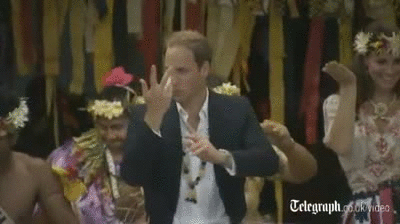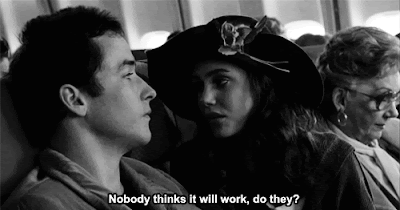Memorial day is upon us! Which can only mean one thing...
A NEW BOOK LIST, OF COURSE!
We're both looking forward to accomplishing some reading goals this summer. So without further ado...
Charlotte's Summer Reading List
My summer reading list looks more ambitious than it is. Yes, it’s 16 books. But if we say summer consists of June, July, and August that shakes out to just about five books a month. Which is good, because I planned on reading 60 books this year. (Actually – I am behind! I’m only at 23 right now. But I’ll catch up.) I didn't go with any particular summery theme. I've actually read a lot of "junk" books lately, so.. I should use the summer to make up for it. Plus I'm not going to be on the beach this summer! I'm going to be in the mountains. I don't know why that makes a difference in my mind when it come to what genre to read, but it does!! Nonsensical. I imagine Les Mis will take at least a week and a half, and that’s if I’m really devoted to it. But a lot of the others should be easy reads to make up for it. At least five of these books are kids’ books, and a few are rereads for me, so that makes it go a bit faster.
1. Les Miserables by Victor Hugo
This is on my list of
books to read in my twenties. I’ve decided I’d like to read it this summer because… well because I keep watching and loving the movie. It’s time. Also, I was reading a bit about John Brown today and I came across this quote from author Victor Hugo:
“Politically speaking, the murder of John Brown would be an uncorrectable sin. It would create in the Union a latent fissure that would in the long run dislocate it. Brown's agony might perhaps consolidate slavery in Virginia, but it would certainly shake the whole American democracy. You save your shame, but you kill your glory. Morally speaking, it seems a part of the human light would put itself out, that the very notion of justice and injustice would hide itself in darkness, on that day where one would see the assassination of Emancipation by Liberty itself.”
So it’s another reason to love Victor Hugo, and it’s pushed me to read his book sooner rather than later.
2. Jane Eyre by Charlotte Bronte
One of my general life goals is to read more classics. Jane Eyre is a classic! Not only that, but Liz challenged me to read three of her favorite books of 2015, and this is one of them. Two birds, one stone. Of the books Liz challenged me to read, I initially chose this one to be first since “I have it already!” Well I took a look through my books today. It turns out I do not in fact own it. BUT tis easy to retrieve from the library.
3. Pride and Prejudice by Jane Austen
I know I’ve mentioned this about 500 times on here, but man. I can’t finish this book! WHY? It’s a mystery. It’s not even as though I don’t like it – so far, I do!! But I just haven’t finished despite reading it for over a year now. What’s wrong with me? I’m vowing to finish it this summer. If I don’t, I’ll have disappointed myself and all of you.
4. Adulting by Kelly Williams Brown
I’m about half way through this book and I am mostly enjoying it, though sometimes it irks me. I’ll explain more when I finish it and write a review. But I most definitely intend to finish it this summer.
5. The Silmarillion by J.R.R. Tolkien
This will be the first time I’m reading The Silmarillion. I’ve loved each book I’ve read of Tolkien’s, so I’m excited about this one. And I found it nice and cheap at a used book store. ;)
6. The Fellowship of the Ring by J.R.R. Tolkien
7. The Two Towers by J.R.R. Tolkien
8. The Return of the King by J.R.R. Tolkien
Rereads for me. Very excited. May have to have a movie marathon, too.
9. The DaVinci Code by Dan Brown
10. Angels and Demons by Dan Brown
I already own The DaVinci Code and have read some of it. I loved both of the movies. I’m constantly telling myself to read these two, and yet, I never do. WHY? It’s time.
11. The Money Book for the Young, Fabulous, and Broke by Suze Orman
Because help.
12. Percy Jackson and the Olympians by Rick Riordan:
The Lightning Thief
The Sea of Monsters
The Titan’s Curse
The Battle of the Labyrinth
The Last Olympian
This series has been on my list since a kid I worked with told me I “NEED TO READ THEM.” The kid also loved Harry Potter and LOTR so I’m going to go ahead and give this series a try.
Liz's Summer Reading List
So, my list is significantly shorter than Charlotte's because: 1) I am easily distracted and 2) my work life is nuts, but slightly less nuts in the summer. That being said, I can probably manage two books a month from June through August, maybe more if I am lucky and/or learn how to manage my time better. This will keep me in line with
my reading goal for this year.
I have a tendency to read lighter reads in the summer, like YA novels. But this summer, I really just need to continue to make a dent in all of these books I have literally piled up throughout my apartment that I have yet to read. That being said, the books that have made my list are books I definitely want to have read this summer. If I can get to more books, awesome, but these are the one's that I'm prioritizing.
1. The Happiness Project by Gretchen Rubin
This is the book I am currently reading, and I am getting a lot out of it so far! I'm a decent way through the book, but it's unlikely I will finish this before June (this time of year is literally the busiest time of year for me at work), so this will be my first summer-read to complete. It's already making me think differently about how to be happier and what lifestyle changes I should aim to make. It could lead to some productive self-development projects this summer...
2. After Dark by Haruki Murakami
Y'all should be proud at how long I've held off from reading another Murakami novel. Anyway, I read somewhere that May is short story month, so I intended to start reading this short stories collection by Murakami two weeks ago. Naturally, I've had essentially no time to add another book to read for this month, so chances are I won't get my start on this until next week in June. I've heard excellent things about After Dark - I think it'll be a great first read for summer 2016! #cantstopwontstopreadingMurakami
3. Ada by Vladimir Nabokov
I love Nabokov's writing - he's easily one of my favorite authors of all time. This has been written by others time and time again about Nabokov, but his writing style is so beautiful. I've also said this before, but I love a book that forces you to think critically, and Nabokov's novels never fail to do this. I'd even say his novels are actually what constitutes a perfect novel. The plots are always captivating, his themes always reveal something meaningful about society and human nature, and the writing is sophisticated while still being accessible. I read Lolita for the first time a few summers ago; Ada should make for an excellent summer read as well.
4. Harry Potter by J.K. Rowling
The whole series would be god damn ambitious for me to finish in one summer (though it would be possible if I didn't want to read as many other things). BUT, I want to start reading the books this summer along with my other reads. It'll be nice to have something easy and pleasant to alternate reading with my other books. I'd also like to be able to stretch the series out through the fall, because what better time of year to read HP than the fall?? Lastly, and most importantly, Charlotte would actually kill me if I didn't start reading them this summer.
5. At the Water's Edge by Sara Gruen
It has been a hot minute since I read Sara Gruen's Water for Elephants, but I remember how much I had absolutely loved it. Water for Elephants was definitely one of my summer reads when I had read it, and At the Water's Edge is right up my alley for a traditional summer read. It has romance, some historical fiction, and fantastical elements (it features the Loch Ness monster! I'm sold).
6. Go Set a Watchman by Harper Lee
I have been waiting to read this since it was announced that it was finally going to be published. Earlier this month I was able to get my hands on a really cheap copy, so now it is finally time to get my eyes on those pages! To Kill a Mockingbird is, obviously, a classic, and it has also always been one of my favorite go-to summer reads. This summer, I finally will get to learn about Scout as an adult, and also get to see her father, Atticus, in a new light.
 |
| Let's talk about how sexy Atticus was in the To Kill a Mockingbird movie adaptation. So sexy. |
7. Farewell Summer by Ray Bradbury
I plan to make Farewell Summer my very last book to read this summer. I know you're probably rolling your eyes and thinking, "wow how corny!" But hear me out first. Farewell Summer is Ray Bradbury's long awaited sequel to his novel, Dandelion Wine. Dandelion Wine is meant to be read in the summer. It's a collection of short stories that take place during the summer in a small midwestern town, and the stories center around two young brothers and the people in their community. Ray Bradbury's writing makes you
feel summer. Bradbury's descriptive writing style is so perfect, it's as if you can feel the summer breeze in your living room, and can smell the dirt on your hands. In Dandelion Wine, he captured the essence of childhood summers. SO, with that said, Farewell Summer will likely encapture the transition of summer into fall and winter in a beautiful way to conclude my own summer.
















































